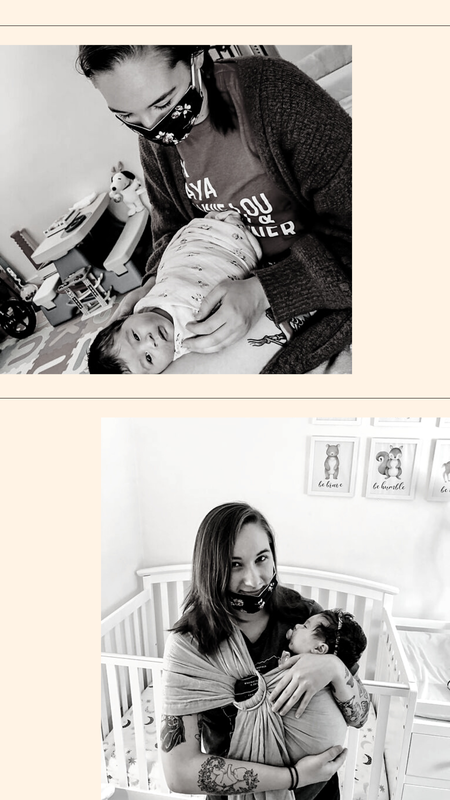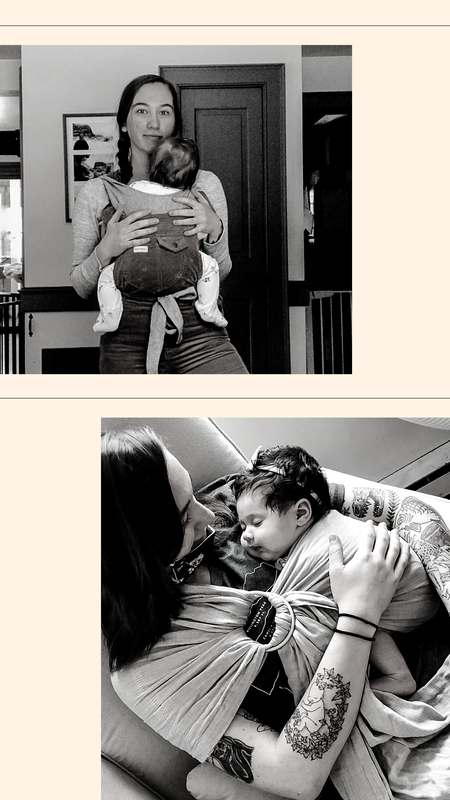|
In 2022 one in eight women still report symptoms of maternal depression. Rates of PMADs are on the rise and we are finally beginning to discuss this more! As the media begins to shed light on this ever so important topic we are also shedding light on the glaring disparities in maternal mental health. There has been a huge focus lately on maternal morbidity and the large gaps we see between white patient outcomes and black, indigenous, and people of color (BIPOC) outcomes, but there is room for an even bigger discussion; the discussion of disparities across all parts of maternal health. PMADs are just one example of another maternal health category that shows disparities by race. Perinatal or postpartum mood and anxiety disorder (PMAD) is the term used to describe distressing feelings that occur during pregnancy (perinatal) and throughout the first year after pregnancy (postpartum). When it comes to PMADs, African American women have a higher risk of developing perinatal depression compared to white women, Latina women also have a higher risk. Current research from the Icahn School of Medicine at Mount Sinai found that 44% of African Americans reported depressive symptoms two weeks after delivery, compared to 31% percent of white women. Despite a higher rate of cases in BIPOC parents, Black and Hispanic women are less likely than White women to be diagnosed with and receive treatment for postpartum depression. Structural racism causes significant inequities in the diagnosis of perinatal and maternal mental health disorders and access to perinatal and maternal mental health treatment. Improving racial equity in healthcare, increasing screening for PMADs, and increasing community support could greatly improve maternal mental health outcomes. What is Racial Equity? The Center for Law and Social Policy (CLASP) defines racial equity as the condition that would be achieved if your racial identity no longer predicted how you fare in life. The Center for Social Inclusion (CSI) states that: “when we achieve racial equity: People, including people of color, are owners, planners, and decision makers in the systems that govern their lives. We acknowledge and account for past and current inequities, and provide all people, particularly those most impacted by racial inequities, the infrastructure needed to thrive.” Improving racial equity would drastically lower disparities in maternal health. Screening for Maternal Mental Health Concerns: A study found disparities between likelihood to receive PMAD screening and race. Clinic site was the strongest predictor of screening, accounting for 23–30% of the variability in screening prevalence. After adjusting for clinic, women who were BIPOC were less likely to be screened postpartum than white women). Those insured by Medicaid were also less likely to be screened. Social determinants of health prevent many people from racial and ethnic minority groups from having fair opportunities for economic, physical, and emotional health. Maternal Mental Health Disparity Statistics:
Upstream Approach: Using upstream approaches to health and racial equity, such as addressing the conditions where people live, work, and play that influence their health. Many community resources that are known to lower rates of PMADs are not accessible to low income families, such as doula care. The push for doulas to be covered by insurance and Medicaid is one way we can make doula care more accessible. Many states are using grant funding to implement mental health resources and training courses to combat the maternal mental health crisis. Vermont implemented STAMPP. Diversity in the Workplace: Diversity in health care helps ensure all backgrounds, beliefs, ethnicities, and perspectives are adequately represented in the medical field. Studies have found that patients are more likely to trust and open up to providers that look similar to them. It has also been proven that a diverse workplace minimizes biases that hurt BIPOC patients and create negative outcomes for BIPOC patients. Healthcare providers should learn how to recognize unconscious bias in themselves and in their office, address any concerns patients may have, and provide all patients with respectful care. All healthcare providers should prioritize continuing education on racial disparities and cultural competency. States and communities can prioritize identifying and addressing social factors influencing; maternal health such as unstable housing, transportation access, food insecurity, substance use, violence, and racial and economic inequality. Other important methods of improvement include: valuing, honoring, and investing in community and traditional healing practices; and promoting integrated care and shared decision making. Resources aiming to prevent and reduce racial disparities:
References:
Goyal, D., Gay, C., & Lee, K. A. (2010). How much does low socioeconomic status increase the risk of prenatal and postpartum depressive symptoms in first-time mothers?. Women's health issues : official publication of the Jacobs Institute of Women's Health, 20(2), 96–104. https://doi.org/10.1016/j.whi.2009.11.003 Hartwell M, Lin V, Gatewood A, Sajjadi NB, Garrett M, Reddy AK, Greiner B, Price J. Health disparities, COVID-19, and maternal and childbirth outcomes: a meta-epidemiological study of equity reporting in systematic reviews. J Matern Fetal Neonatal Med. 2022 Mar 13:1-9. doi: 10.1080/14767058.2022.2049750. Epub ahead of print. PMID: 35282754. Saluja B, Bryant Z. How Implicit Bias Contributes to Racial Disparities in Maternal Morbidity and Mortality in the United States. J Womens Health (Larchmt). 2021 Feb;30(2):270-273. doi: 10.1089/jwh.2020.8874. Epub 2020 Nov 25. PMID: 33237843.
0 Comments
Leave a Reply.The light isn't green forever. AuthorJess Kimball is a Full Spectrum Doula and Certified Lactation Counselor trained in Ayurvedic and Chinese medicine. |
|
EST. 2016
North Carolina | Vermont Jess Kimball |
© COPYRIGHT 2015. ALL RIGHTS RESERVED.
Jess Kimball provides doula care, birth photography, and a variety of other services to families!
|

 RSS Feed
RSS Feed
